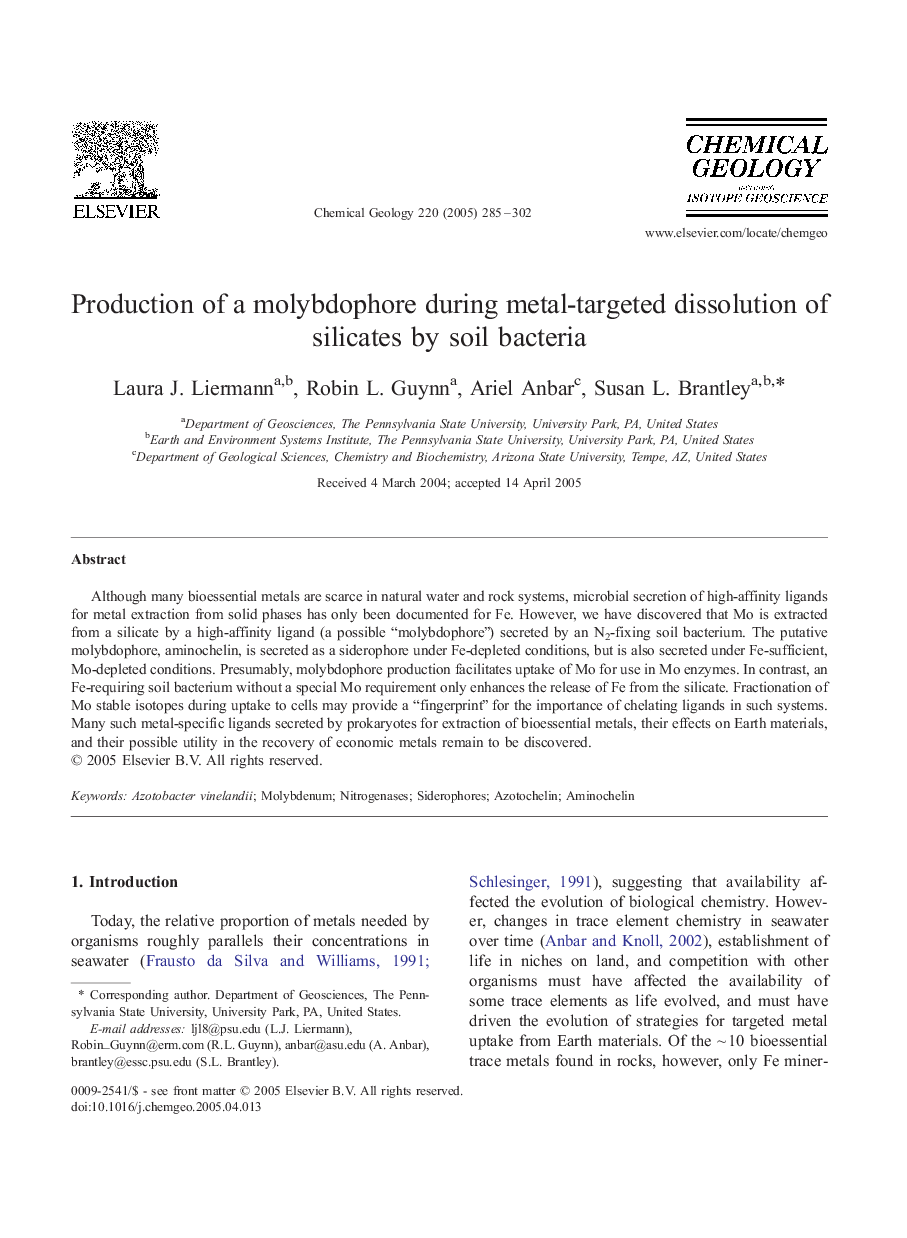| Article ID | Journal | Published Year | Pages | File Type |
|---|---|---|---|---|
| 9528970 | Chemical Geology | 2005 | 18 Pages |
Abstract
Although many bioessential metals are scarce in natural water and rock systems, microbial secretion of high-affinity ligands for metal extraction from solid phases has only been documented for Fe. However, we have discovered that Mo is extracted from a silicate by a high-affinity ligand (a possible “molybdophore”) secreted by an N2-fixing soil bacterium. The putative molybdophore, aminochelin, is secreted as a siderophore under Fe-depleted conditions, but is also secreted under Fe-sufficient, Mo-depleted conditions. Presumably, molybdophore production facilitates uptake of Mo for use in Mo enzymes. In contrast, an Fe-requiring soil bacterium without a special Mo requirement only enhances the release of Fe from the silicate. Fractionation of Mo stable isotopes during uptake to cells may provide a “fingerprint” for the importance of chelating ligands in such systems. Many such metal-specific ligands secreted by prokaryotes for extraction of bioessential metals, their effects on Earth materials, and their possible utility in the recovery of economic metals remain to be discovered.
Related Topics
Physical Sciences and Engineering
Earth and Planetary Sciences
Geochemistry and Petrology
Authors
Laura J. Liermann, Robin L. Guynn, Ariel Anbar, Susan L. Brantley,
